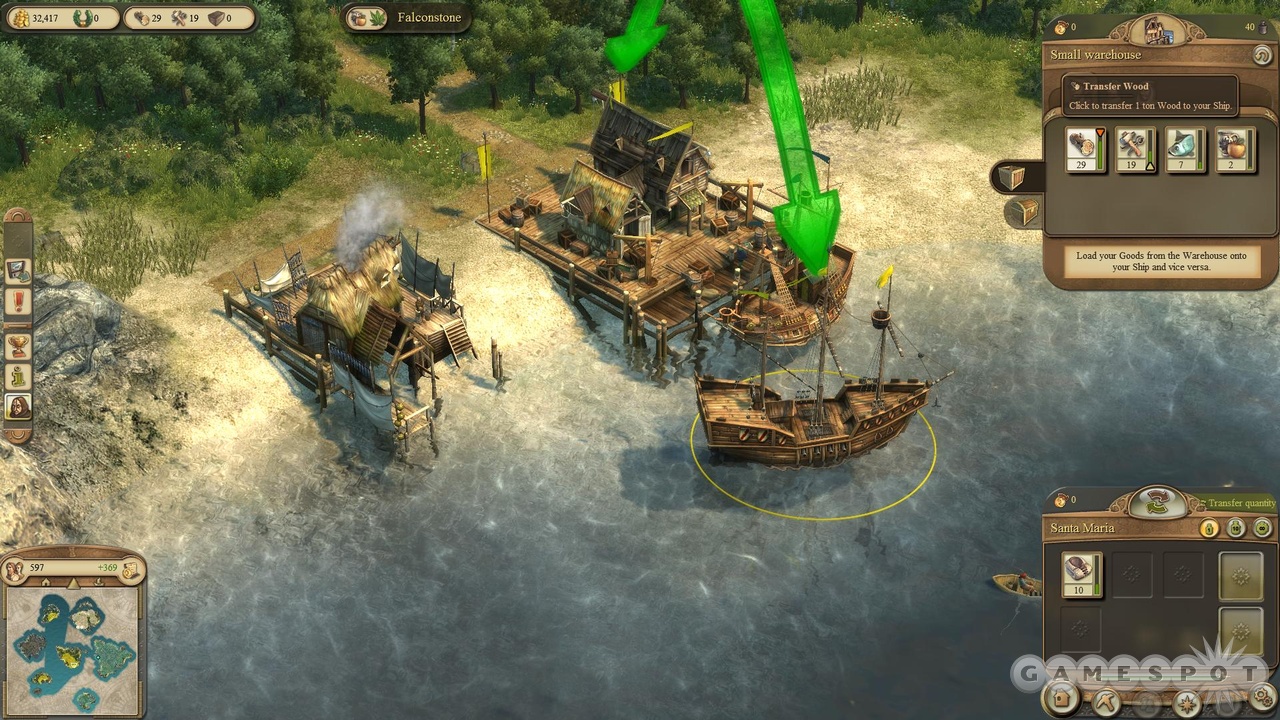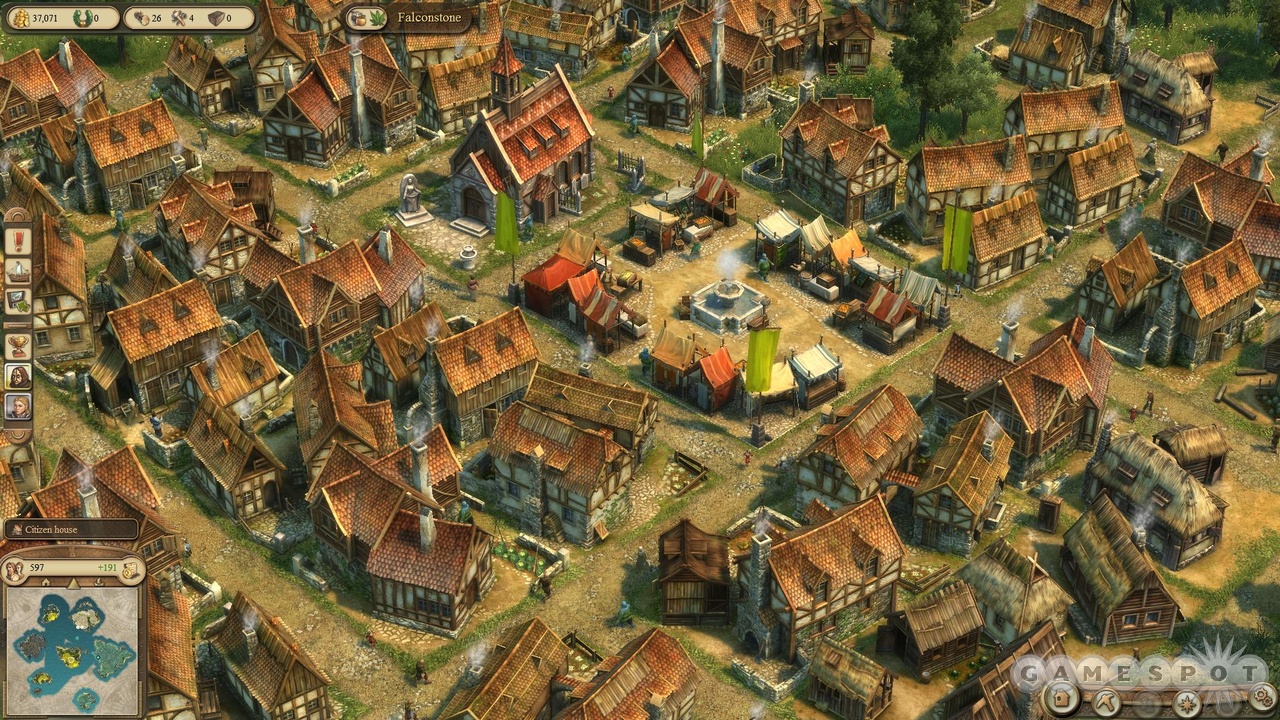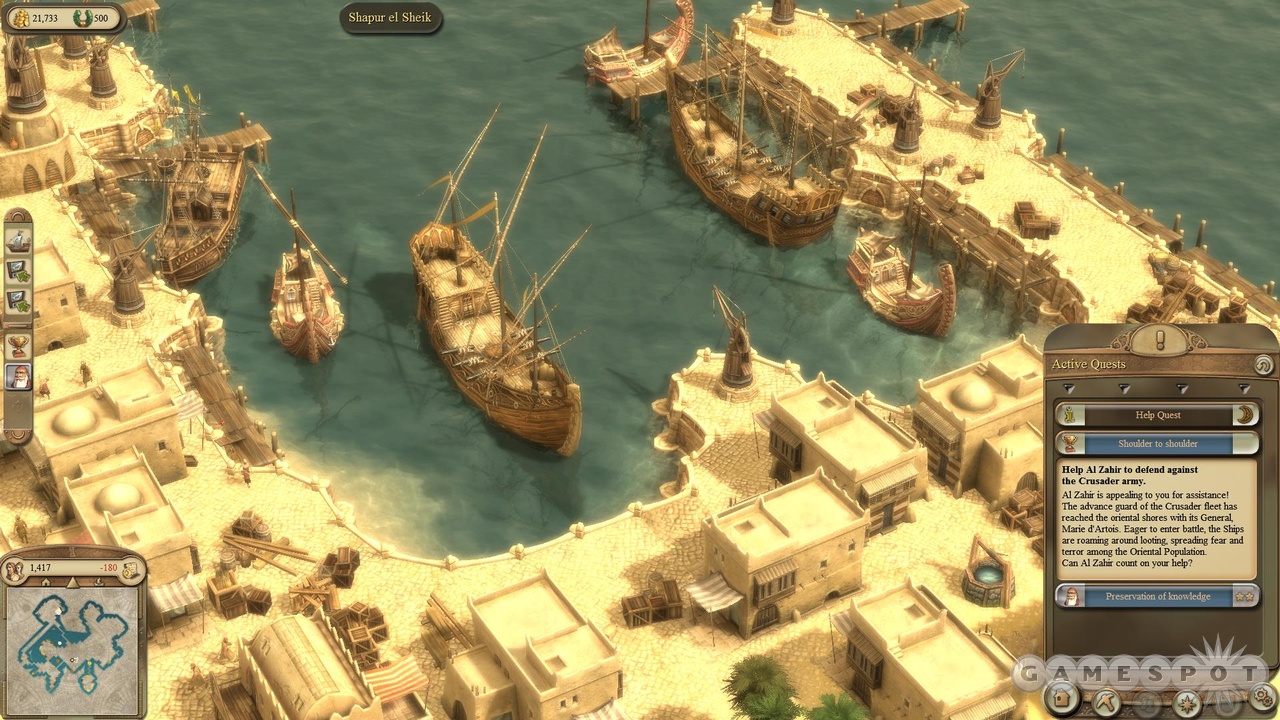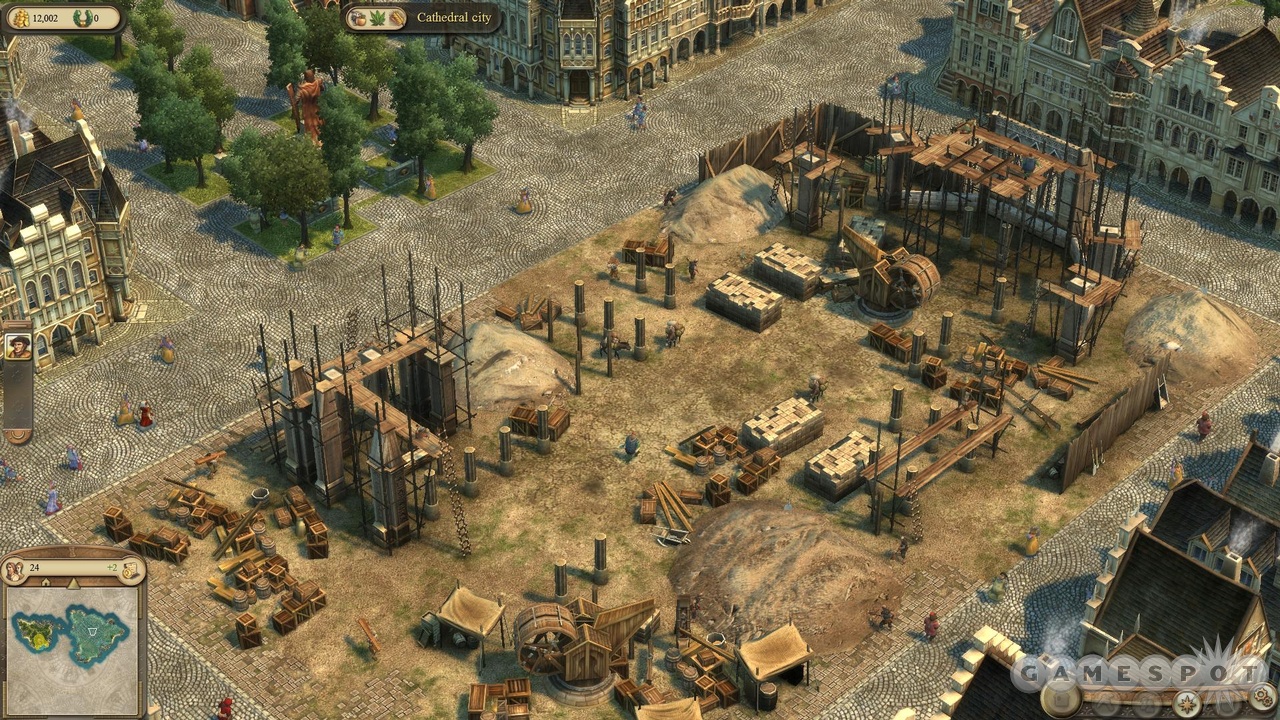Few things stir the human imagination like the notion of exploration, and few games tap into the appeal of exploration as well as Dawn of Discovery. Here, you'll sail across seas of perfect deep blue, seeking out the next little island on which to build a proud settlement. Once discovered, you'll work the land to produce all manner of goods to make your people thrive while building new ships to forge still further into the unknown. The sheer complexity of producing many of the goods you'll need and the difficulty of taking your settlements to the highest levels of sophistication prevent Dawn of Discovery from being accessible to everyone, but the tremendous depth and terrific production values make it a no-brainer for fans of the genre.

Known as Anno 1404 outside of North America, Dawn of Discovery is the fourth entry in the Anno series of historically themed city-building and trading games. Dawn of Discovery offers both a very linear campaign and a richly customizable continuous play mode. There's so much to Dawn of Discovery that most players will want to start with the more structured campaign to become familiar with the gameplay. The campaign tells a compelling tale of religious conflict and unlikely alliances between East and West, but the structure, which sends you on an endless series of quests on behalf of other global powers, makes you feel more like an errand runner for nobles than a noble yourself. It's in the continuous play mode--where you can set your own goals for victory and chart your own course for achieving them--that Dawn of Discovery is at its best.
Regardless of the mode you're playing, the core action consists of discovering new islands, building settlements, cultivating goods, and managing the needs of your populace to advance your society. The more advanced your society is, the more gold you collect in taxes, but a bigger population doesn't guarantee richer coffers. Your people have needs for food, drink, faith, company, clothing, and amusement that become increasingly difficult to meet as your society becomes more advanced. Thus, it takes careful planning to produce goods quickly enough to meet those needs while keeping production costs to a minimum and preventing your cities from operating at a deficit. Sometimes, you'll need to put other considerations ahead of the well-being of your people by raising taxes to generate the money you need to dig yourself out of debt or denying your people certain goods as you stockpile them for an important construction project. The interface makes selecting and placing buildings, as well as managing taxes, very easy.
Unfortunately, the game never educates you on how to place your buildings for maximum production efficiency. To make matters worse, the manual that accompanies the game is utterly useless and sheds no light on how to build an efficient, profitable society. This makes the initial uphill climb considerably steeper and more frustrating. But once the pieces all come together and you're able to build a flourishing city, it's immensely rewarding.

While meeting the needs of peasants is easy, the challenge of satisfying wealthier, more refined residents is considerably more difficult because you'll need to run several production facilities to produce many of the goods they require. Producing leather jerkins, for instance, requires a source of coal, a salt mine, a salt works, and a pig farm. Ultimately, you'll have dozens of production facilities in operation; some generate such basic goods as hemp, while others combine and process those basic goods into other products. You'll also likely have ships carrying goods from island to island along trade routes that you have established, which is a breeze thanks to the intuitive routing interface. Few things can make you feel more like the ruler of an empire than seeing your ships sail the seas engaged in trade and operating autonomously while you're free to focus on other things. And you'll need that freedom because there's never any shortage of things for you to supervise. Dawn of Discovery is a multitasker's dream because you'll want to keep an eye on a myriad of production flows to make sure that things are humming along properly. This ranges from ensuring that the lumberjacks have enough trees to chop down to making sure that the land is properly irrigated for the production of goat's milk. On the flipside, those who prefer a more focused experience may find the sheer number of considerations involved here overwhelming and distracting.
In order to create a truly advanced society, you'll also need to look beyond the West to discover what the East has to offer. To truly enjoy life, your people will need spices and other goods that they just can't produce for themselves. It's a good thing, then, that as your European village develops into a proper city, you'll earn recognition from other leaders and slowly gain access to the architecture and technology of the Orient, which enables you to create Eastern settlements as well. Contrasting the marketplaces, churches, and peasant homes of your Western towns with the bazaars, mosques, and nomad houses of your Eastern settlements makes Dawn of Discovery feel broad in scope and also brings a great deal of visual diversity to the game.

When playing the continuous play mode, you're given a huge number of customization options to tailor the game to your liking. These include the overall size of the world, the number and size of the islands in it, the fertility of those islands, your starting balance and conditions, the number and skill of AI players, conditions for victory (if any), and plenty more, which allows you to set your own standards for success. You can set out to form mutually beneficial trading relationships with the AI-controlled players or wipe them from the face of the earth. It's important to note, though, that while military might does come into play in Dawn of Discovery, military strategy does not. If you want to win a war against another player, you'd better have a richer, stronger society with an infrastructure capable of producing more troops because combat comes down to players throwing their armies at each other and seeing the larger army emerge victorious. Some may find this disappointing, and those seeking engaging military tactics are advised to look elsewhere. Dawn of Discovery's approach ensures that you can't win or lose by military tactics alone and that success is all about making your society flourish. Single games in the continuous play mode can easily take a dozen hours or more to resolve, so don't expect to get a quick fix here. This is a game that will keep you up into the wee hours as things slowly but surely continue to develop. Players who like completion will enjoy coming back to the continuous play mode time and again to try to attain the game's 206 achievements, which include such lofty goals as constructing a massive imperial cathedral within eight hours and simultaneously owning 10,000 buildings.
A huge part of what makes all this world management so compelling is just how alive that world seems. As you look down at your settlements from on high, you'll be captivated by all the activity. Smoke rises realistically off of production buildings while workers till the fields. The streets fill up with nobles and peasants, laborers and beggars, worshipers, and rabble-rousers. Carts travel along the roads, carrying goods from their makers to nearby markets. The seas, too, are busy with trade ships going to and fro along their routes. And should you fail to meet the needs of your people, you'll see their discontent reflected in their behavior as they walk the streets carrying protest placards, starting fires, and destroying buildings. The one thing that can break the spell that the visuals cast is the tendency of people and ships to pass right through each other, which is particularly noticeable when you zoom in for a closer view. On the whole, though, Dawn of Discovery is a visual delight.
The music and sound also contribute significantly to the allure. The score changes with the action to create a sense of both the intimate and the epic, shifting from the gentle strumming that might befit a small hamlet to lush choral arrangements that set the tone for huge European cities. It also switches to an Eastern motif when you're overseeing a settlement in the Orient. The sounds are authentic and outstanding, from the lapping of waves onshore to the creaking of wood as boats rock back and forth on the water. You'll also hear your residents hawk their wares at the marketplace and comment on their quality of life.

It's unfortunate that you can't share the world of Dawn of Discovery with other human players because the ability to trade marzipan and brocade robes or wage war with your friends would make the experience all the more compelling. And we encountered a minor bug with a mission in the campaign's fifth chapter that required us to load an earlier saved game, which is consistent with experiences that many players are reporting. But even as it stands, the lively, inviting appeal of the worlds you'll discover and create make this game's 15th-century setting a place you'll naturally enjoy spending time. There's so much to do in Dawn of Discovery, so many goods to buy and sell, and so many goals to strive for that you'll enjoy coming back to this game of commerce and conflict time and time again.